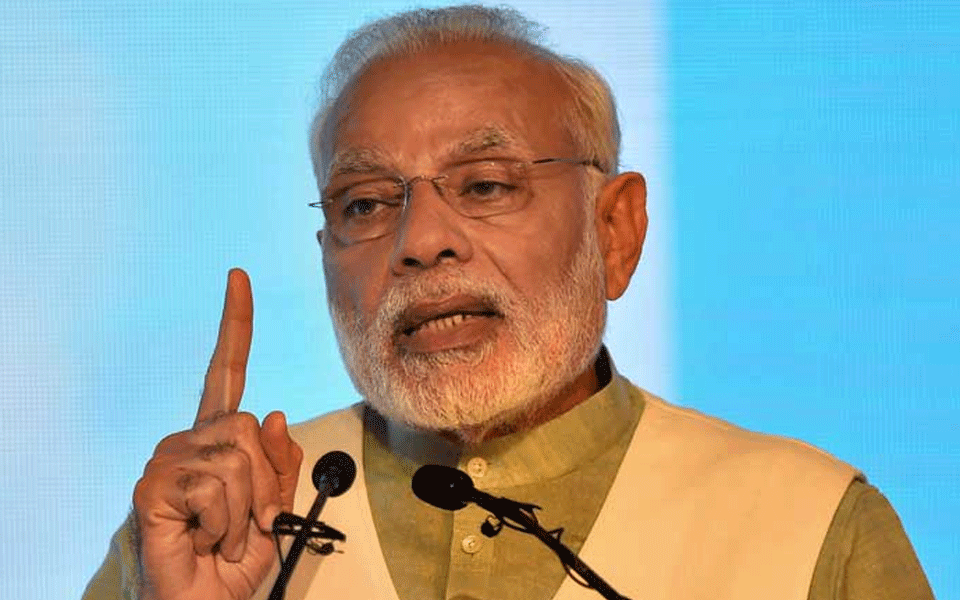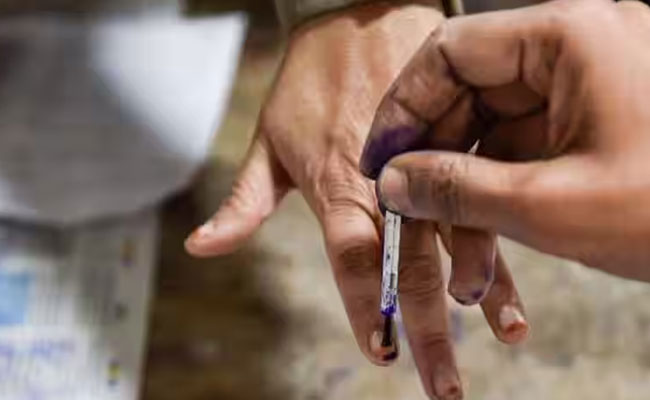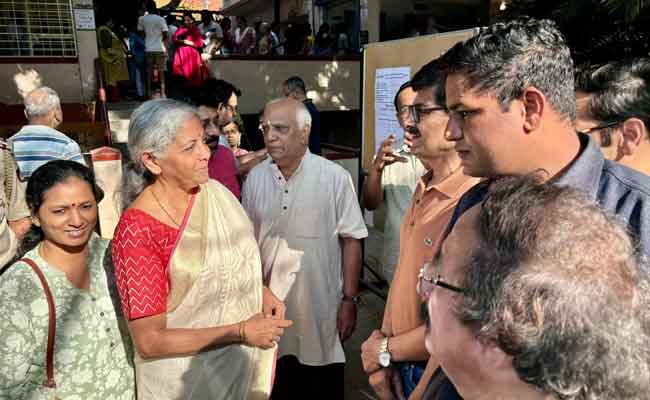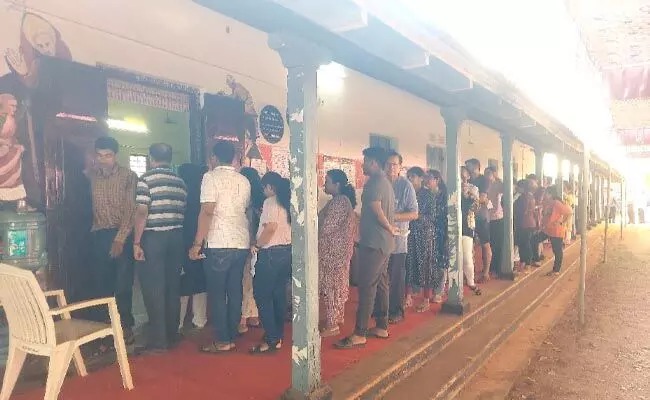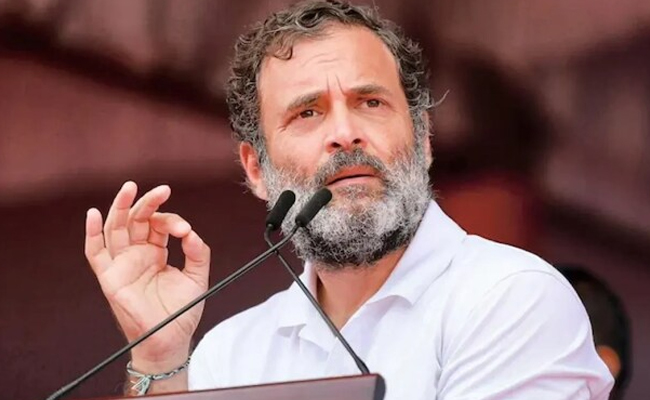New Delhi, Sept 14: A noted UK-based medical journal has said Narendra Modi is India’s first prime minister to prioritise universal health coverage (UHC) as part of his political platform under the ‘Ayushman Bharat’ scheme, even as it added that Congress chief Rahul Gandhi was “yet to match Modicare”.
Richard Horton, editor-in-chief of the The Lancet, said the prime minister has grasped the importance of health not only as a natural right of citizens, but also as a political instrument to meet the growing expectations of the emerging middle class of India, which is engulfed in a “swirling epidemic of non-communicable diseases”.
“Rahul Gandhi seeking to resurrect the Congress and prove that India’s greatest political dynasty still has something to offer, despite his promises to help lower castes, tribal communities and rural poor, is yet to match Modicare,” Horton said in an article published in the journal.
The Lancet editor-in-chief asserted that health will be a decisive issue in next year’s general election in the country.
With reference to five India-specific disease burden studies on non-communicable diseases published in The Lancet group of journals on Wednesday, Horton said, “as the BJP and Congress set out competing and contrasting visions for India’s future, health will rightly become a decisive issue in next year’s general election”.
Referring to Gandhi’s statement of “There is a full-blown crisis in India” at the London School of Economics last month, he said the Congress president was referring to a “job crisis”, but the five papers published across three Lancet specialty journals have revealed that there was also a “health crisis” in India.
“After years of neglect, the Indian government has at last recognised the perils of public discontent about health. Under a new initiative called Ayushman Bharat launched this year, Prime Minister Modi has implemented two new flagship programmes.
“Ayushman Bharat has two pillars – the creation of 1,50,000 health and wellness centres across the country to provide a spine of primary care facilities to deliver universal health coverage; and the National Health Protection Mission (NHPM), a health insurance aimed at providing coverage of Rs 5 lakh per family annually, thus benefiting more than 10 crore poor families,” said the article.
“Together, these twin programmes should improve access to quality health services and reduce out-of-pocket health expenditures,” it said.
Horton in the article said Modi’s stated goal is to build a new India by 2022.
“Rahul Gandhi has spoken about a ‘modernising impulse’ in India and the possibility of ‘a transformation of 1.3 billion people’. Modi has grasped the importance of health not only as a natural right for India’s citizens, but also as a political instrument to meet the growing expectations of India’s emerging middle class.
“Modi is the first Indian Prime Minister to prioritise universal health coverage as part of his political platform. Rahul Gandhi, despite his promises to help lower castes, tribal communities, and the rural poor, has yet to match Modicare,” the article said.
Horton said the five Lancet papers have also revealed a dangerously rapid epidemiological transition with Ischaemic heart disease being the leading individual cause of disease burden in India, while the contribution of cardiovascular diseases to total deaths has almost doubled since 1990.
“While India is engulfed in this swirling epidemic of non-communicable diseases, the country is also in the grip of a mental health emergency. India could claim 18% of the world’s population in 2016, yet it accounted for 37% of global suicide deaths among women and 24% among men,” the article added.
Courtesy: thewire.in
Let the Truth be known. If you read VB and like VB, please be a VB Supporter and Help us deliver the Truth to one and all.
Bengaluru (PTI): Voting was underway on Friday in the first phase of Lok Sabha polls in 14 constituencies in Karnataka.
Polling began at 7 am and will end at 6 pm.
A total of 247 candidates -- 226 men and 21 women -- are in the fray for the first phase covering most of the southern and coastal districts, where more than 2.88 crore voters are eligible to exercise their franchise in 30,602 polling stations.
The Congress and BJP are locking horns on the electoral battleground again in less than a year.
This election is witnessing a straight fight between the ruling Congress and the BJP-JD(S) combine unlike the Assembly elections in May last year which witnessed a triangular contest among the three parties.
The state has a total of 28 Lok Sabha constituencies. The second phase of polling in the remaining 14 seats is on May seven.
In the first phase, while the Congress is contesting in all 14 seats, BJP has fielded nominees in 11 and its alliance partner JD(S), which joined the National Democratic Alliance in (NDA) in September last year, in three -- Hassan, Mandya and Kolar.
Besides the three, the segments where elections are being held on Friday are: Udupi-Chikmagalur, Dakshina Kannada, Chitradurga, Tumkur, Mysore, Chamarajanagar, Bangalore Rural, Bangalore North, Bangalore Central, Bangalore South and Chikkballapur.
According to Election Commission, 1.4 lakh polling officials are on duty for the first phase.
Besides them, 5,000 micro-observers, 50,000 civil police personnel, and 65 companies of Central Paramilitary Force and State Armed Police force of other States have been deployed for security.
All the 2,829 polling stations of Bangalore Rural parliamentary constituency are being webcast.
"This is as per the request of our returning officers and observers; so we have given more than double the Central paramilitary force for Bangalore Rural constituency. Seven companies of Central paramilitary forces have been inducted at the constituency since April 22," Karnataka Chief Electoral Officer Manoj Kumar Meena has said.
In fact, out of the total 30,602 polling stations in the first phase, 19,701 are webcast, and 1,370 covered via CCTVs, he had added.
Chikkaballapur has a maximum number of 29 candidates, followed by 24 in Bangalore Central, and Dakshina Kannada has the least number at nine.
JD(S) leader H D Kumaraswamy from Mandya, his brother-in-law and noted cardiologist C N Manjunath from Bangalore Rural on a BJP ticket against Deputy CM D K Shivakumar's brother and MP D K Suresh of Congress, and erstwhile Mysuru royal family scion Yaduveer Krishnadatta Chamaraja Wadiyar from Mysore, from the BJP, are among the prominent candidates in the fray in the first phase.
Also in the contest are BJP MP Tejasvi Surya from Bangalore South pitted against Minister Ramalinga Reddy's daughter Sowmya Reddy of Congress, and Union Minister Shobha Karandlaje on BJP ticket from Bangalore North against former Indian Institute of Management Bangalore professor M V Rajeev Gowda of Congress.

